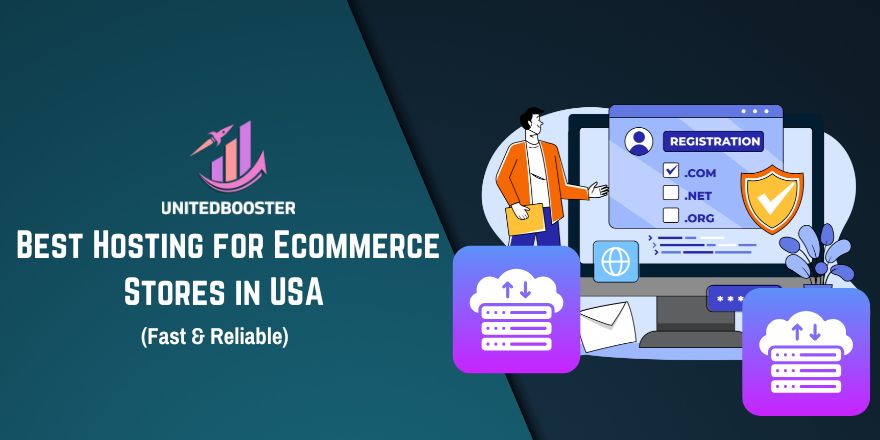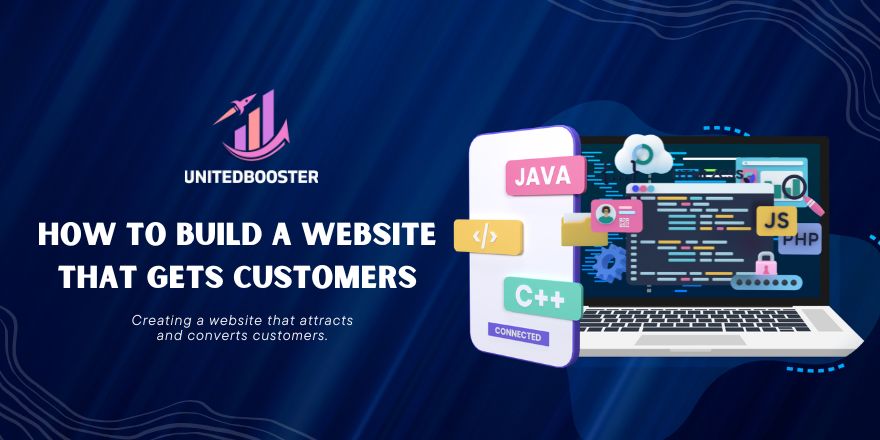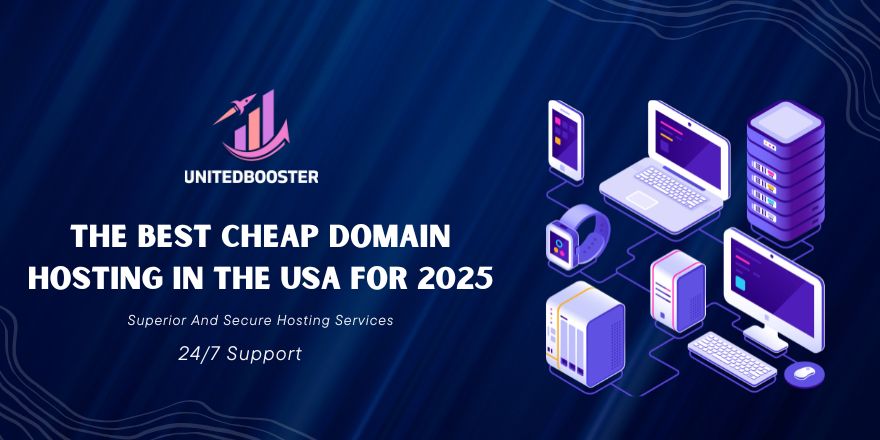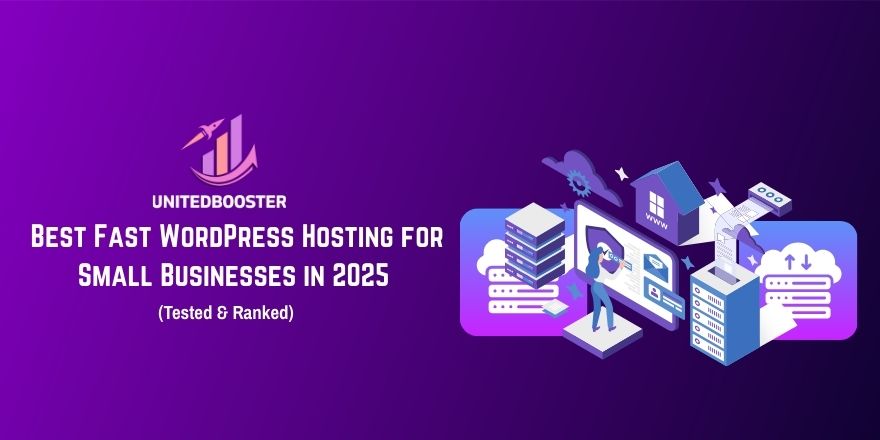Let’s Be Honest: Your Hosting Can Make or Break Your Online Store
Running an online store is fun until your site crashes in the middle of a sale or takes ages to load when a customer is ready to buy. No one has time for spinning wheels and broken carts. People bounce. You lose money. Simple as that.
So, what’s the best hosting for ecommerce stores?
Straight answer? It depends on your platform, budget, and how big your store is. But the most reliable picks out there include SiteGround, Cloudways, and Shopify. They give you solid speed, strong security, and customer support that won’t ghost you when stuff breaks. Let’s talk more about what matter.
What Really Makes a Hosting Provider Worth It for Ecommerce?
Getting the right hosting is like choosing the right location for a physical store. You wouldn’t want your shop hidden in a dark alley, right?
Speed & Performance
Shoppers are impatient. If your page takes more than 3 seconds to load, half your customers are already gone.
What to look for:
- SSD storage (makes your site faster)
- CDN (delivers content quicker to users around the world)
- Server-side caching (speeds up the delivery of repeat content)
Even if you don’t understand what these mean, just know they help your store load faster. And fast stores make more money.
Ready to take your online store to the next level? Our ecommerce hosting solutions offer reliability, speed, and scalability to support your growing business.
Uptime
A site that goes down often is like a store with the doors locked during business hours. Not cool.
You should be getting at least 99.9% uptime from your host. Anything less and you’re losing sales every time your site disappears.
Security
You’re handling customer info and payment data. You need a host that makes sure no shady hackers get in.
Good hosts come with:
- Free SSL certificates (protects customer data)
- Firewalls and malware protection
- PCI compliance (if you accept card payments directly)
You don’t need to be a tech wizard, but your hosting should come ready with solid locks on the doors.
Ecommerce Compatibility
Some hosting companies just “get” ecommerce. They support your needs from the jump.
You want support for:
- WooCommerce, Magento, PrestaShop, etc.
- Payment gateway integrations
- Email setup for order updates
If your host treats ecommerce like a weird cousin, skip it.
Support That Actually Helps
Something will break. It’s a fact. When it does, the last thing you need is someone blaming you or sending you links to outdated help articles.
Look for hosts that offer:
- 24/7 support
- Live chat or phone support
- Actual ecommerce experience
Because when your cart stops working 10 minutes before payday, you need help now, not tomorrow.
Scalability
You might start with 10 products and end up with 1,000. Your host should grow with you.
The best providers let you scale without migrating everything to a new server. It’s like upgrading from a scooter to a car without changing your driver’s license.
Types of Hosting: Which One Actually Works for Ecommerce?
This part can be confusing, but let’s break it down into plain English.
Shared Hosting (Everyone in One Room)
You and a bunch of strangers share the same space and resources. It’s cheap but risky.
Best for: Tiny shops with almost no traffic.
Avoid if: You’re planning to grow or run sales.
VPS Hosting (Private Room)
You get your own portion of the server. More space, better performance.
Best for: Growing stores that need stability.
Cloud Hosting (Apartment With Backup Generators)
Your site runs on multiple connected servers. That means less downtime, more flexibility.
Best for: Businesses expecting unpredictable traffic or fast growth.
Dedicated Hosting (You Own the Building)
You get the whole server to yourself. Power and control, but also responsibility.
Best for: Big brands with high traffic and in-house tech teams.
Managed Ecommerce Hosting (Everything’s Handled)
Shopify, BigCommerce, and Wix fall into this category. They manage the tech stuff, so you can just focus on selling.
Best for: Non-tech folks or those who just want to sell without the headaches.
To build and grow a successful ecommerce business, it’s crucial to invest in reliable domain hosting and a professional website development service tailored for online stores.
Top Hosting Providers for Ecommerce (No Hype, Just Real Talk)
Let’s keep this simple. Here are solid picks for ecommerce hosting.
1. SiteGround
- Excellent for WooCommerce
- Fast, secure, and beginner-friendly
- 24/7 helpful support
Why it works: Great balance of price and performance. Their support team actually solves stuff, not just send you links.
2. Cloudways
- Scalable cloud hosting
- Ideal for Magento, WooCommerce
- You pick from cloud providers like DigitalOcean or AWS
Why it works: More control and flexibility. Best for techies or stores planning to grow.
3. Shopify (Fully Managed)
- No need to worry about hosting at all
- Secure, fast, and ecommerce-focused
Why it works: If you don’t want to deal with hosting, Shopify does everything for you.
4. Bluehost
- WooCommerce-optimized plans
- Simple for beginners
Why it works: Good starting point. But not the fastest for bigger stores.
5. Nexcess
- Managed hosting for Magento, WooCommerce
- Automatic updates and security features
Why it works: Built for ecommerce. They know what stores need and don’t throw you under the bus when traffic spikes.
What You Should Avoid (Seriously, Don’t Do This)
- Don’t pick hosting based only on price. Cheap hosting usually costs more in the long run.
- Avoid free hosting. It’s a trap. You get slow speeds, bad support, and zero reliability.
- Don’t skip SSL. No padlock = fewer sales.
- Stay away from hosts that don’t specialize in ecommerce. Not every host gets what an online store really needs.
FAQs
Which hosting is best for a WooCommerce store?
SiteGround and Cloudways are top choices. Both support WooCommerce well, and they’re fast, secure, and reliable.
Can I use shared hosting for my store?
You can, but it’s risky. If your traffic grows or someone else on the server gets a traffic spike, your site could slow down or crash.
Do I need managed hosting?
Not always, but it helps if you’re not into tech stuff. Managed hosting takes care of updates, security, and performance so you can focus on sales.
What is the most beginner-friendly ecommerce hosting?
Shopify is the easiest because it handles everything for you. But if you’re using WordPress, SiteGround is a great beginner option.
Can I change hosting providers later?
Yes. It’s just a bit of work. But many hosts offer free migration services.
Final Thoughts: Don’t Let Hosting Be Your Weak Link
Ecommerce success isn’t just about your product or website design. If your hosting is trash, everything else falls apart.
Get the basics right: speed, uptime, security, and support. Pick a host that understands ecommerce. And don’t cheap out unless you like stress.
For expert help in building a reliable online store, check out United Booster’s ecommerce solutions — your foundation for speed, scalability, and success.
Your hosting is like your store’s foundation. Build it strong, and the rest becomes way easier.








